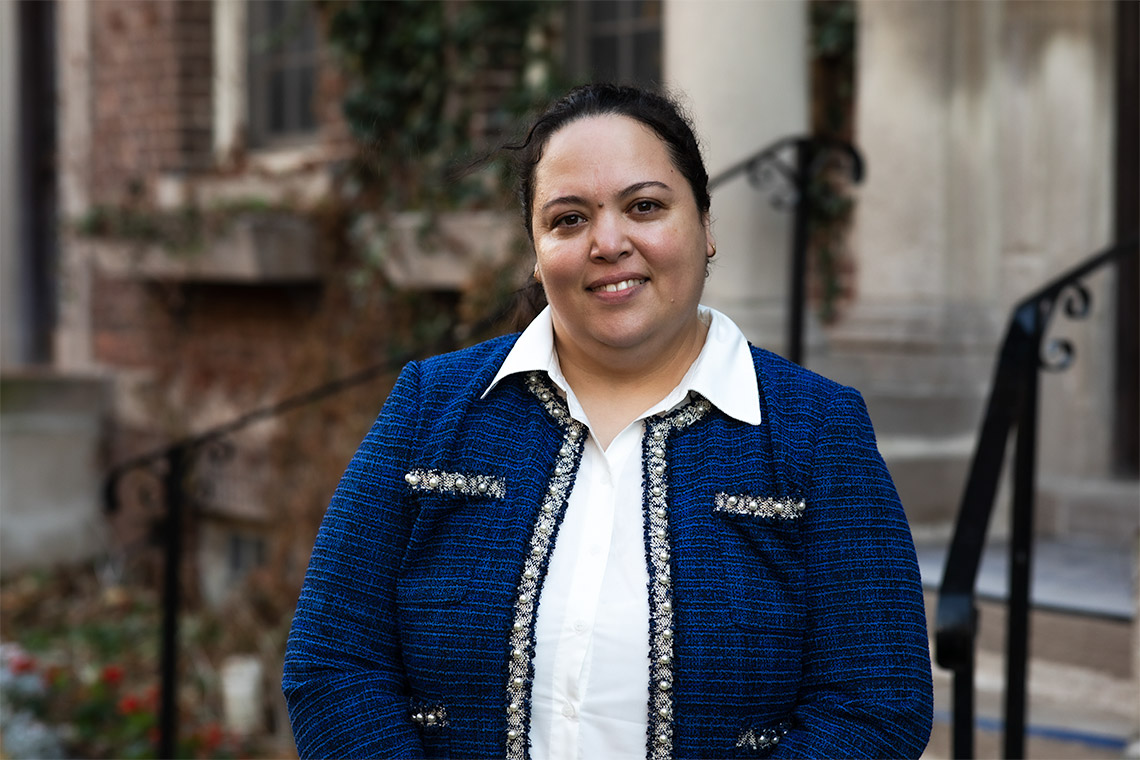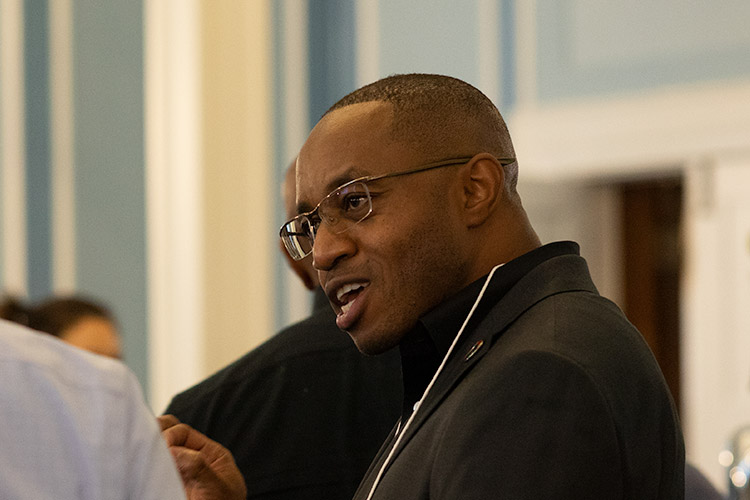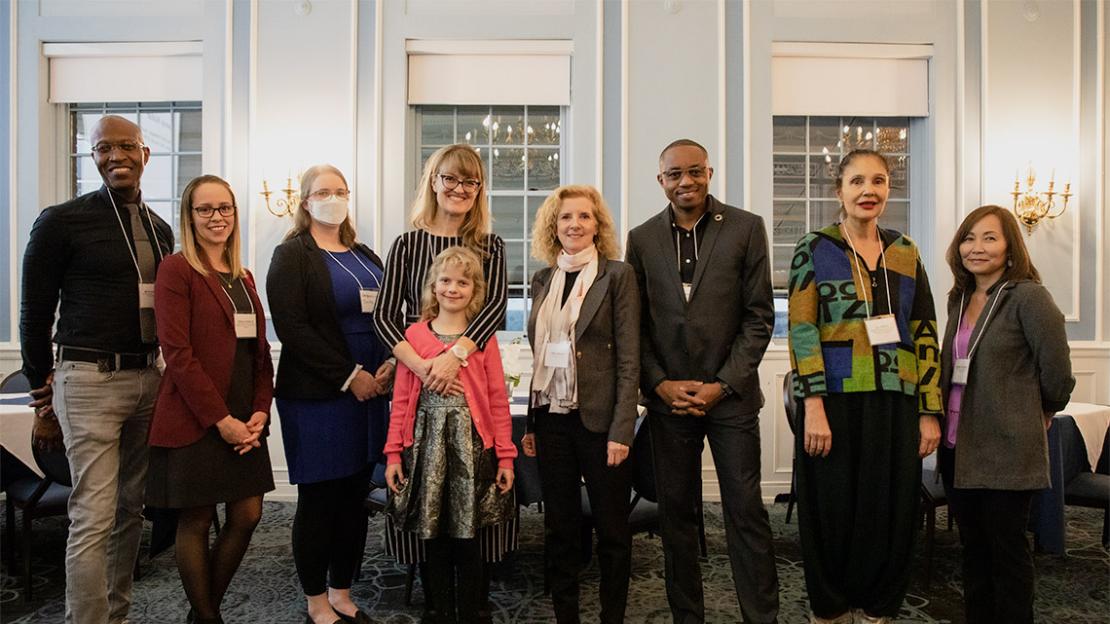At the University of Toronto, great teachers aren’t merely experts in their field. They’re skilled in imparting their knowledge to new generations of scholars and researchers – a process, they say, that often begins with learning about their students.
Associate Professor Maria Assif says she prioritizes what’s been dubbed “’relationship-rich relationship-rich classrooms,’ in which students and faculty build personal connections, student-student interactions foster educationally meaningful relationships and the magic of one classroom extends to other classrooms and communities.”
Assif was among the top teachers – including recipients of the President’s Teaching Award, the OCUFA Teaching Award, the University of Toronto Teaching Fellowship, the Global Educator Award, the 3M Teaching Fellowship, and the Early Career Teaching Award – celebrated recently at the Excellence in Teaching reception hosted by Vice-President and Provost Cheryl Regehr.
“COVID-19 forced us to look at pedagogy in new ways – to adjust our sense of what is possible, to reconsider how we teach, and to think more deeply about how our students learn,” Regehr said. “One could say that it made us all be more like the award-winners that I am so pleased to be celebrating.”
U of T News spoke with several of the award winners about their approach to teaching, how the pandemic affected the way they work in the classroom and their advice for other educators.

Maria Assif
Associate professor, teaching stream, department of English, U of T Scarborough
President’s Teaching Award
“As an educator, I prioritize what Peter Felten and Leo Lambert describe as ‘relationship-rich classrooms,’ in which students and faculty build personal connections, student-student interactions foster educationally meaningful relationships and the magic of one classroom extends to other classrooms and communities.
I have been integrating technology more comprehensively and deliberately in the classroom in ways that I have never previously imagined pre-pandemic. I have also started to prioritize student mental health support in lesson planning and assessment – a pedagogical decision I have kept post-pandemic as well.
These are tips that have made a difference at varying stages of my teaching career: be present in the moment; listen with intent and care to students; keep a daily journal where you reflect on your teaching; remember that teaching is a privilege, and your pedagogical decisions impact students’ learning and lives; consider a daily, self-care routine, trust your instincts when you feel the need for a break; attend pedagogical development sessions; and stay connected with colleagues who share a passion for and a commitment to teaching and learning.”

Obidimma Ezezika
Assistant Professor, department of health and society, U of T Scarborough
Early Career Teaching Award
“The essence of my approach comes down to creating experiential and active learning opportunities that allow students to thrive, which includes creating work-integrated learning courses where students have gone on to receive prizes, prestigious conference presentation invitations and awards. I also design and implement various pedagogical innovations such as the BioRacer board games, animated storylines, entrepreneurial pitches, reflective writing, the global health textbook and other active engagement learning opportunities that cater to students’ diverse learning preferences.
I evolved my approach with the pandemic from work-integrated learning to Global Classrooms. For example, in 202I, I launched a new global classroom course, collaborating with the University of Ibadan, several NGOs and eight middle schools.
The values one has for teaching are as important as the techniques one brings to the classroom. I believe that education is not just about the methods and pedagogical innovations I implement but about the compassion and value I have for students. It is challenging to have an impact unless you genuinely care about your students’ goals.
READ THE FULL STORY AT U OF T NEWS
